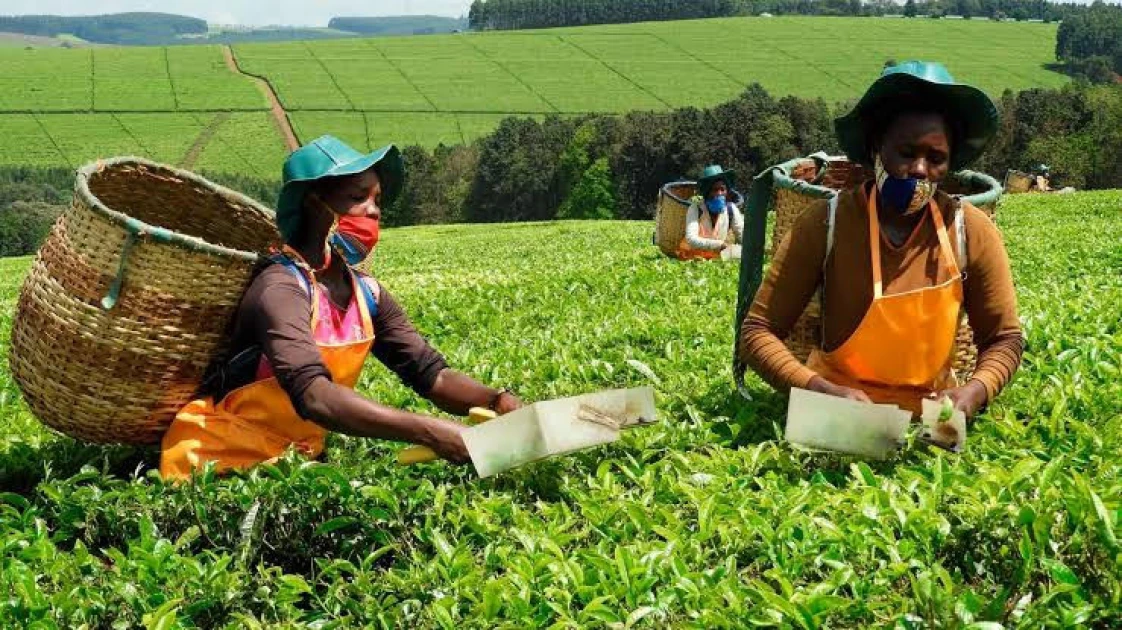'All toil and no pay': Bomet tea farmers decry poor returns
Published on: April 16, 2025 11:26 (EAT)

Tea farmers in Bomet.

Audio By Vocalize
By Stanley Kimoru
In the heartlands of Kericho, Nandi, Bomet, and Nyamira, tea bushes carpet the hills like a green sea. For many, this is the image of Kenya’s success — a global tea powerhouse, shipping millions of kilos abroad each year.
But behind the quiet beauty of these plantations is another story, one that doesn’t make headlines or glossy export reports: the daily grind of the workers who tend the crop.
In Boisio village, tucked deep in Bomet County, Jane Chepkemoi begins her day before sunrise. She has worked on a nearby tea estate for over a decade.
The work is repetitive, physically taxing, and the rewards, she says, are barely enough to sustain a family of four.
“We wake up early, work the whole day, and still struggle to meet our needs,” she says.
Across many tea plantations in Kenya, workers like Jane face the same struggles. The recent shift to machine-based harvesting has seen thousands lose their jobs, particularly casual laborers who once relied on seasonal picking to feed their families.
Though efficient, the machines have brought uncertainty to communities long dependent on manual labor.
The situation is worsened by poor living conditions on most estates. Families are crammed into aging housing units, often lacking privacy, reliable sanitation, or clean water. Medical care is rarely close or affordable, forcing many to ignore illnesses or walk long distances to the nearest health facility.
For women workers, the burden is even heavier. They make up a large part of the workforce but often face discrimination, harassment, and limited chances of advancement. Few feel safe raising complaints, fearing backlash or job loss.
While some estates have introduced welfare improvements — such as upgrading houses or organizing health talks — the changes are scattered and often cosmetic.
The deeper issues of job insecurity, stagnant wages, and poor working environments remain largely unaddressed.
Kenya’s tea continues to win favor in international markets, celebrated for its quality and flavor. But the hands behind the harvest remain in the shadows. Until their voices are heard and their conditions improved, the country's tea success story will always be missing a critical chapter.


Leave a Comment